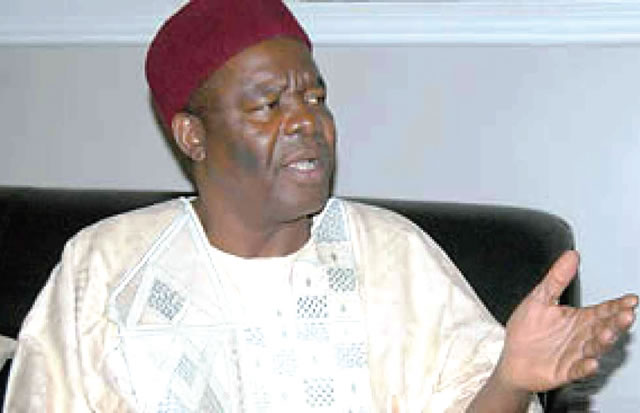Jonathan Zwingina, a prominent politician and former Senate Majority Leader, has reportedly passed away at the age of 70. While his family has not yet confirmed the news, various sources, including Leadership Newspaper, indicate that Zwingina died on October 2 in Abuja after battling a prolonged illness. His contributions to Nigerian politics, particularly during the historic June 12, 1993 presidential election, through his role as the Director-General of the MKO Abiola campaign organization, highlighted his influence in the political landscape of the country.
Born in Adamawa State, Zwingina represented the Adamawa South Senatorial District in the Nigerian Senate. His political career was marked by his role as a founding member of the Peoples Democratic Party (PDP), one of the country’s major political parties. However, later in his career, Zwingina made the significant decision to defect to the All Progressives Congress (APC), a move that underscored his evolving political alliances and adaptability to the changing dynamics within Nigerian politics.
Zwingina’s passing marks the end of a significant chapter in Nigerian political history, particularly for those who were involved in the democratic process during the early ’90s. The June 12 election, which was widely regarded as one of the freest and fairest in Nigeria’s history, saw a surge of democratic aspirations, aspirations that Zwingina fervently supported as part of the campaign organization for MKO Abiola. His efforts during this crucial period have left a lasting impact on the nation’s journey toward democratic governance.
Aside from his political stature, Zwingina is remembered for his dedication to representing the people of Adamawa South. His tenure in the Senate was instrumental in addressing various socio-political issues affecting his constituents. His leadership style and commitment to service earned him respect among colleagues and constituents alike, solidifying his legacy in the annals of Nigerian politics.
The political landscape of Nigeria today is reflective of the foundational work laid by leaders like Zwingina. His experiences and efforts have contributed significantly to the evolution of political party dynamics within the country, influencing the trajectory of governance and party affiliation. Despite the controversies and challenges that often characterize political life in Nigeria, Zwingina’s focus on democracy and good governance remains a key aspect of his legacy.
In conclusion, Jonathan Zwingina’s death is a poignant reminder of the challenges faced by Nigeria as it continues to navigate its democratic journey. As the nation mourns the loss of a prominent leader, the contributions he made will not be forgotten. The political community, along with his family and supporters, will likely reflect on his achievements and the impact he had on the political landscape, both in Adamawa and across Nigeria.














